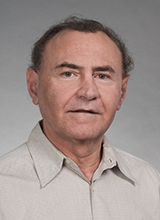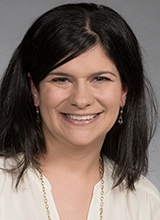
Scholarly Expertise: Psychological distress


Kristen Lindgren
Personal Statement
I am a Professor and Licensed Clinical Psychologist in the University of Washington’s Department of Psychiatry and Behavioral Sciences and am Board Certified in Cognitive and Behavioral Psychology. I received my Ph.D. in clinical psychology from the UW in 2006 and returned to UW as a faculty member in 2010.
My research interests include problematic substance use (including alcohol and marijuana), posttraumatic stress disorder (PTSD), identity and self-concept, and resilience. My work focuses on investigating implicit (i.e., non-conscious or automatic) cognitive processes and processes related to self-concept and identity that contribute to the development and maintenance of maladaptive behavior and psychopathology. A second line of my work focuses on developing and increasing access to briefer, effective interventions for individuals who are trauma-exposed. Support for my work has been provided by the National Institute on Alcohol Abuse and Alcoholism, the National Institute on Drug Abuse, and the University of Washington’s Garvey Institute for Brain Health Solutions and the Addictions, Drug & Alcohol Institute. I also serve as a consultant for dissemination projects aimed at training community-based mental health workers in Cognitive Processing Therapy and other evidence-based treatment for PTSD in locally, nationally, and internationally.

Barbara McCann
Personal Statement
I am interested in mood and anxiety disorders and the intersection of these with chronic medical illnesses. My approach to treatment is integrative. Working within a cognitive-behavioral framework, I use many traditional CBT methods, including hypnosis, mindfulness training, and concepts from third-generation cognitive and behavioral methods.
Julia Ruark
Personal Statement
I am a board certified psychiatrist and work at Fred Hutchinson Cancer Center. I am a Clinical Assistant Professor of Psychiatry and Behavioral Sciences at the University of Washington. I obtained a fellowship in consultation-liaison psychiatry, a specialty that focuses on providing psychiatric care for people with complex medical conditions. My primary clinical focus is people with cancer. I love my work. Being ill is a vulnerable time and my goal is to ease suffering and provide a sense of connection and understanding for all I work with. I believe in working collaboratively with patients and families. We work together to identify what the goals of treatment are. I have expertise in diagnosis, psychopharmacology and psychotherapy and adapt my recommendations to best serve the goals of the person before me. I am also passionate about education. I am the site director at Fred Hutch Cancer Center for our Psycho-oncology Fellowship Program. I supervise Cl fellows, addiction fellows, psychiatry residents and provide education to social workers and psychology trainees.
Peter Vitaliano
Personal Statement
Over the last 25 years, my work has focused on relationships between stress and health in several risk groups (spouse caregivers of persons with Alzheimer’s disease, medical students, psychiatric/medical outpatients/inpatients, air traffic controllers, and camp counselors). We have developed and/or revised measures of medical student stress, caregiver burden, patient anger/dyscontrol, process coping, appraisal, neuropsychological function and physician awareness of patient problems. These measures have been used by university researchers, insurance companies, pharmaceutical companies in clinical trials, prisons, nursing homes/long term care, rehabilitation facilities, and public health organizations. These psychosocial and behavioral measures have been shown to predict and be predicted by physiological and cognitive measures. We have also focused on moderators of such relationships, such as gender, personality, and co-morbidities. We have used primarily multicohort long-term studies that allow for interactions between exposures to stressors, hard-wired vulnerabilities, and more temporal resources. We attempted to identify mechanisms that can be potentially altered to have long-term public health significance in persons under chronic stress. I have also attempted to isolate groups that are at high risk for negative outcomes. In a perfect world, interventions should be used to help all persons who have deleterious responses to stress, but society cannot afford this. For this reason, the identification of high risk groups is imperative for maximizing the effect of interventions.
My research program’s long range goal is to better understand the mechanisms by which chronic stress translates into physical, mental, or cognitive health problems. We are examining caregivers of spouses with AD and demographically-similar spouse non-caregivers across time and assessing the degree to which elevated depression, stress hormones, inflammation, and insulin resistance in caregivers predict cognitive decline in caregivers relative to non-caregivers. We are also attempting to replicate our earlier work that showed that chronic stress and chronic disease moderate each other’s physiological risks. For example, physiological dysregulation that is specific to a disease (e.g., metabolic syndrome with CHD, blood pressure reactivity with hypertension, and immune function with cancer history, HbA1c with diabetes) is exacerbated in caregivers with a chronic disease relative to non-caregivers with a chronic disease, but no such differences occur in caregivers versus non-caregivers without a chronic disease. Finally, we are examining a large cohort of older adults sampled from various U.S. communities in order to assess the influence of life stressors on long term cognitive function and potential mediators of such changes.

Jennifer Piel
Personal Statement
As a clinical and forensic psychiatrist, my professional roles include being the Director of the UW Center for Mental Health, Policy, and the Law; Associate Professor in the Department of Psychiatry; and a Staff Psychiatrist at the VA Puget Sound. I hold multiple board certifications: Psychiatry, Forensic Psychiatry, Brain Injury Medicine, and Sports and Performance Psychiatry. In addition to my medical training, I earned my law degree from the University of Washington. As a member of the American Academy of Psychiatry and the Law (AAPL), I serve on the Ethics, Research, and Resident Education Committees and I twice earned AAPL’s Young Investigator Award. I am the Legal Digest Editor for the Journal of the American Academy of Psychiatry and the Law. I have served as an expert witness or consultant in legal cases involving criminal and civil competencies; criminal responsibility; malpractice; personal injury; sexual and gender harassment; and fitness for duty, among others. I teach courses in forensic mental health at the University of Washington and speak locally and nationally on topics related to psychiatry and the law.
Paul Phillips
Personal Statement
My lab’s focus is reward processing, how it differs under behavior phenotypes that are more vulnerable or resilient to mental illness and how it is changed by psychiatric pathology. Our primary focus is dopamine transmission and the circuits in which is participates.
We developed tools that allow us to track dopamine with sub-second resolution in animals over the course of months (Clark et al, Nat Methods, 2010). This approach allows us to study trajectories of precise neurochemical encoding of behaviors over the course of the development of symptomology and subsequent treatment in animal models of disease. We also have adapted this technology for intraoperative recording in humans (Kishida et al, PLoS One, 2011).
Our research highlights include contributions in the area of dopamine’s role in learning (Flagel et al, Nature, 2012), decision making (Gan et al, Nat Neurosci, 2010) and goal navigation (Howe et al, Nature, 2013). We have gleaned information on how stress impacts appetitive motivation (Wanat et al, Nat Neurosci, 2013), how adolescent alcohol use produces enhanced risk taking later in life (Clark et al, PLoS One, 2012), and identified biological mechanisms for the motivational shift in stress-induced depressive disorders (Lemos et al, Nature, 2012) and the switch to excessive drug intake in substance abuse (Willuhn et al, Nat Neurosci, 2014).
These approaches have attracted a large number of collaborations, including National Academy members Akil, Palmiter, Graybiel and Kandel.
Elaine Peskind
Personal Statement
I am Co-Director of the VA VISN 20 (Northwest Network) Mental Illness Research, Education, and Clinical Center (MIRECC). I am also the Friends of Alzheimer’s Research Professor of Psychiatry and Behavioral Sciences at the University of Washington (UW) School of Medicine and am Associate Director of the UW Alzheimer’s Disease Research Center. My research over the past 30 years has addressed cognitive and behavioral problems and cerebrospinal fluid (CSF) biomarkers in neurodegenerative dementing disorders such as Alzheimer’s disease. More recently, my research has focused on combat trauma posttraumatic stress disorder and the clinical phenomenology as well as neuroimaging and CSF biomarkers of neurodegeneration in combat blast concussion mild traumatic brain injury and in Gulf War Veterans Illness. I continue to conduct single site as well as multi-site large scale studies of CSF biomarkers and pharmacological treatment trials for behavioral disorders and traumatic brain injury.
Summary of my research program:
Blast Concussion Mild Traumatic Brain Injury (mTBI)
Strategies: multimodal neuroimaging: structural and functional magnetic resonance imaging (diffusion tensor imaging [DTI], DTI tractography, macromolecular proton fraction mapping, resting state and task-based functional MRI; susceptibility-weighted imaging, FDG-positron emission tomography [PET]; cerebrospinal fluid and plasma biomarkers; genetic risk factors; clinical, neurocognitive and behavioral assessments,
Gulf War Veterans Illness (GWVI)
Strategies: multimodal neuroimaging and CSF and plasma biomarkers as described above, epigenetics, pain sensitivity testing and ability to activate endogenous opioid systems, and functional activity of paraoxonase I, the enzyme that metabolizes organophosphate insecticides.
Cerebrospinal Fluid and Plasma Biomarkers of Neurodegeneration Strategies: Bead-based multiplex assays using Luminex and Meso-Scale platforms, Quanterix ultra-sensitive platform, and broad-scale mass spectrometry for measurement of proteins, circulating RNAs, microRNAs in collaboration with VA/UW and Institute for Systems Biology investigators.
Pharmacologic Treatment of Disruptive Agitation in Alzheimer’s Disease (AD)
Strategies: Alzheimer’s Disease Cooperative Study multi-center randomized placebo-controlled trial of the alpha-1 adrenoreceptor antagonist, prazosin, for treatment of disruptive agitation in AD.

Ty Lostutter
Personal Statement
I am a licensed clinical psychologist in Washington State. I am the Director of the University of Washington School of Medicine’s Psychology Internship Program which is accredited by the American Psychological Association’s Office of Program Consultation and Accreditation. And, I conduct research on health and risk behaviors across the lifespan. Specifically, I have conducted research in the areas of college student alcohol use, young adult gambling behavior, and co-morbidity of substance use and mental health/risk behaviors (i.e. risky sexual behaviors). I have extensive experience working with college students/young adults, military/veteran, and minority/diverse populations. I am also interested in mental health issues including depression, anxiety, and PTSD. I maintain an active clinical practice in the areas of mental health issues with patients diagnosed with hematological and oncological illness and have clinical responsibilities at the Fred Hutchinson Cancer Center. I also provide clinical supervision for psychology residents and psychology practicum students at Fred Hutchinson Cancer Center as well. Overall, my professional aspirations are to improve the public health through empirically-supported psychological interventions and providing mentorship to diverse trainees to expand the reach of psychology.

